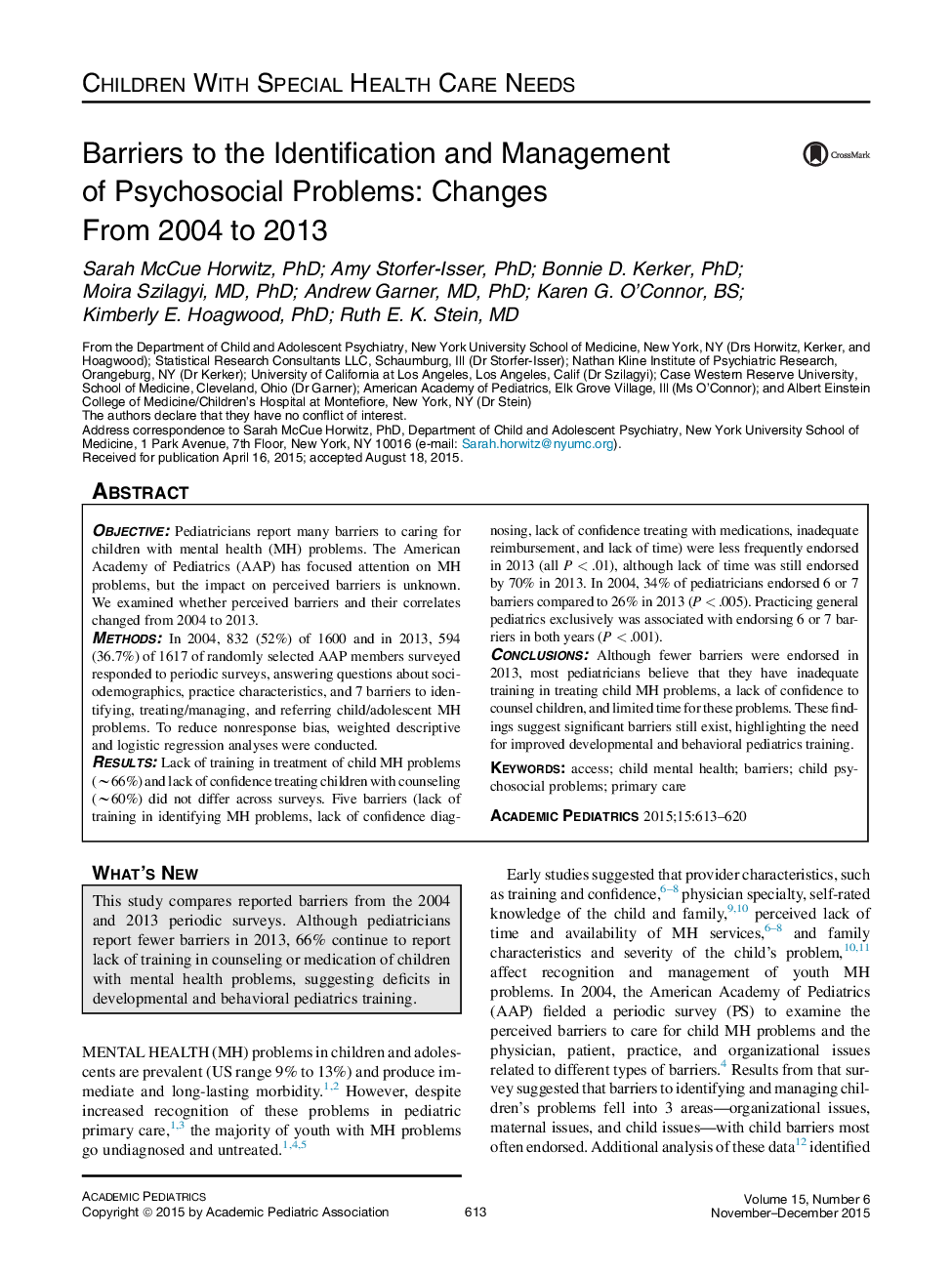| Article ID | Journal | Published Year | Pages | File Type |
|---|---|---|---|---|
| 4139001 | Academic Pediatrics | 2015 | 8 Pages |
ObjectivePediatricians report many barriers to caring for children with mental health (MH) problems. The American Academy of Pediatrics (AAP) has focused attention on MH problems, but the impact on perceived barriers is unknown. We examined whether perceived barriers and their correlates changed from 2004 to 2013.MethodsIn 2004, 832 (52%) of 1600 and in 2013, 594 (36.7%) of 1617 of randomly selected AAP members surveyed responded to periodic surveys, answering questions about sociodemographics, practice characteristics, and 7 barriers to identifying, treating/managing, and referring child/adolescent MH problems. To reduce nonresponse bias, weighted descriptive and logistic regression analyses were conducted.ResultsLack of training in treatment of child MH problems (∼66%) and lack of confidence treating children with counseling (∼60%) did not differ across surveys. Five barriers (lack of training in identifying MH problems, lack of confidence diagnosing, lack of confidence treating with medications, inadequate reimbursement, and lack of time) were less frequently endorsed in 2013 (all P < .01), although lack of time was still endorsed by 70% in 2013. In 2004, 34% of pediatricians endorsed 6 or 7 barriers compared to 26% in 2013 (P < .005). Practicing general pediatrics exclusively was associated with endorsing 6 or 7 barriers in both years (P < .001).ConclusionsAlthough fewer barriers were endorsed in 2013, most pediatricians believe that they have inadequate training in treating child MH problems, a lack of confidence to counsel children, and limited time for these problems. These findings suggest significant barriers still exist, highlighting the need for improved developmental and behavioral pediatrics training.
